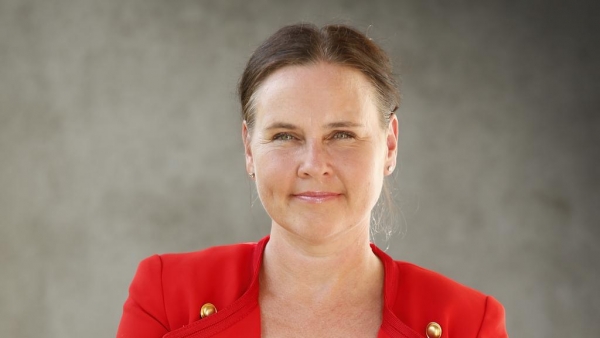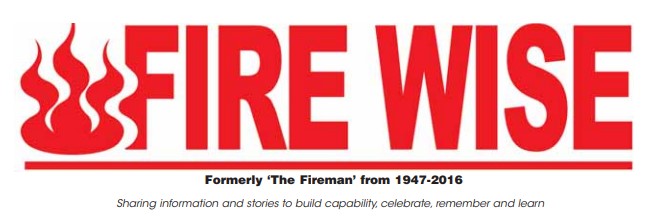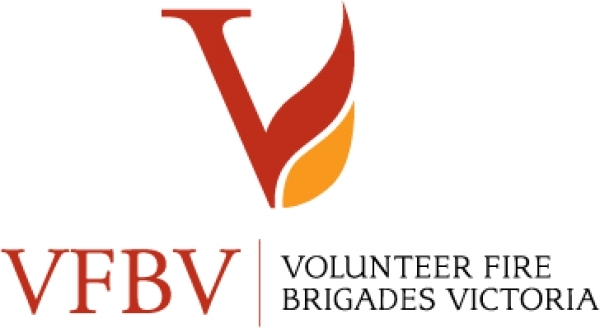Cultural Intelligence
By Adam Barnett, VFBV Chief Executive Officer
There is bound to be a wide range of reactions and views of the external culture and issues management review that was recently released.
There will be some who read of an experience and history that is just foreign to them and is not recognisable from their experience with CFA or their brigade. There will be others who see themselves or someone they care for within the pages of the report.
Some will feel shame, while others may deny the extent to which some things are reported to have occurred and doubt the veracity or motives of those who have shared such experiences. And there will be some who carry a feeling of deep injustice or anger and will be bitterly disappointed that there is not more blame and judgement towards a person in authority or towards a system that has let them down. Others will welcome the recognition and acknowledgment of the many strengths and positive aspects of CFA and the blueprint for the way forward.
How does one even begin to make sense of such wide ranging and disparate views?
You will find VFBV’s public response to the release of the report here.
Thank-you to all those volunteers and staff that bravely shared their personal stories and experiences and by doing so have contributed to this review.
Ultimately, I hope enough people read the report and feel empowered to be part of the change. Empowered to take a stand, accept responsibility for our own actions and contribute to the change required, not just at CFA corporate level, but in our local groups and in our brigades. You can’t fix what you can’t see, and you can’t change what you don’t understand is a motto that can help guide our thinking and reflection.
Other organisations have walked these paths too. The words of their leaders continue to resonate.
Chief Commissioner Graham Ashton APM wrote following the 2015 report into Victoria Police:
“There have been numerous attempts to deal with this issue in the past, but they did not achieve the change that was needed.”
“This must change, this will change.”
Chair of Ambulance Victoria Ken Lay AO wrote following the 2021 report into Ambulance Victoria:
“Far too many of these stories hide in plain sight – accepted, tolerated, or ignored.”
“Each and every one of these stories recount a level of harm that has been inflicted on our people by those they work alongside.”
“The courage of those who have come forward must be rewarded with a renewed commitment and drive to make things better.”
And Dr Helen Szoke AO who was the lead reviewer of the CFA report and former Victorian Equal Opportunity and Human Rights Commissioner says in the report:
“The review recognises that culture is led from the top, nurtured at the middle and supported by all.”
As is clear in the report, VFBV was an active contributor to the review, and I wish to also thank all delegates and members who contributed to the review and all those that continue to support our work in raising awareness of the issues and advocating for change and improvement.
Picking up on Dr Szoke’s point that we all contribute to an organisations culture, I wanted the focus of this month’s opinion piece to support people thinking about what each of us can do as individuals to contribute and support the culture journey we are on. People will be quick to point out all the things they think others should be doing, but the opportunity for real and lasting change lies within each of us.
Following the release of the report, the most common questions posed towards me by outsiders have been along the lines of; is it a good report, or a bad report?; does CFA have a good culture or a bad culture?; is CFA a good place to be part of or a bad place to be part of?; is CFA diverse or not?; does CFA embrace change or not?; do people within CFA uphold CFA values or not?
I could go on and on.
The one thing all these questions have in common, is each are trying to define CFA with a binary option. Yes or no. True or false. Good or bad.
Binary of course being the primary language used by computers and electronics.
That is all well and fine for machines - but you wouldn’t use binary to evaluate the culture of an organisation like CFA any more than you would ask your toaster what is the meaning of life? (The answer is 42 of course).
In this vein I defer to sociology. Sociologists study the interaction between different cultures and the people who form them. However, even for them - trying to define what culture is as a term eludes absolute definition for it often means different things to different people.
The meaning that resonates most strongly with me in the context of CFA is that culture consists of the experiences, perspectives, values, beliefs, practices and behaviours within a particular group at a specific period in time.
Culture is complex and this is why cultural differences between two or more groups can often lead to conflict. Culture can also be incredibly unifying and instil a common purpose and belonging.
Many of you would be familiar with IQ and EQ.
IQ being a measure of our intelligence, whereas EQ describes our emotional intelligence and ability to identify and regulate our own emotions and to recognise the emotions of others and our capacity to feel empathy toward them.
Less known is CQ - cultural intelligence, which is a relatively newer field of study that expands our awareness of how culture impacts us and increases our self-awareness and perspective of our own values and behaviours. In simple terms, it measures how well we can work with diverse groups of people.
And while the concept is often taught from a business leadership perspective, governments and diplomats across the world have begun to understand the benefits.
It would be fair to say that within CFA we have a very complex interplay of cultures. There is not only an organisational wide culture, but also a regional one, a district one, a group one and a brigade one. Even in a brigade there can be many subsets or groupings of people. Culture is often referred to as the ‘how we do things here’ attitude that can not only compliment our strategic goals but can also fracture or contradict. On top of the organisational cultures, we then have the personal ones that are influenced by our own backgrounds, our language our upbringing and life experiences just to mention a few. People often gravitate towards others they feel share the same interests and values. While this can provide an immense belonging and unity, it can be exclusionary or isolating to those on the outside.
There is a fantastic TEDx talk featuring Julia Middleton who founded the UK charity called Common Purpose that promotes leadership development with a multicultural focus. You can access it here.
It is only 13 minutes long, and I highly encourage those interested in brigade leadership to have a look.
In it she describes the evolution of cultural intelligence (CQ), and jokes about the people who often say they are “very good with people……” but then forget to add those two extra words at the end “…..like me.” She uses this antidote to emphasise the skills leaders need to lead and unite people that are not like ourselves.
She goes on to describe the concept of CQ by explaining the “core” and “flex” of people’s identity. The “core” being made up of your beliefs, behaviours and values that you will not adjust or compromise, and your “flex” representing the beliefs, behaviours and values that you are willing to adjust to better relate to others.
She describes a moving line that moves with great care as your knowledge and perspective changes over time and you get to know and understand yourself better.
However, the really important point she makes at the end of the talk is her revelation that in her experience, a true measure of one’s cultural intelligence isn’t how many different cultures they have studied, but rather how well they understand their own culture and values, and how strongly it influences our way of seeing the world, and how we judge and interact with others.
Regular readers will be very familiar with my deep respect for our history and traditions. We have so much to be proud of. But the overwhelming lesson I believe our forebears have taught us is that CFA only rose to become the preeminent volunteer emergency service that it is today by all those volunteer leaders who were pioneers and drove change and propelled the evolution of our fire services. If our forebears were only interested in protecting the status quo, CFA would not have achieved its present standing and be the force in the defence of our communities that it is today.
In the words of Julia Middleton – cultural intelligence gives us hope that as leaders we can change things.
Unless we use the review as an opportunity to claim and improve our future, it will simply be an anchor to those elements of our past that have been so destructive.
VFBV will keep driving focus and attention on the systemic issues involving systems and processes, but I urge every member to think about what they are personally doing to contribute to our culture. In what state will you leave things in your group, brigade, BMT, or crew? Will it be in a better state than what you inherited? Will those people that you lead feel more safe, respected and included by your actions? Are your teams inclusive and diverse in thought, age, culture, ethnicity and gender? I think we not only owe it to ourselves to improve, but for all those courageous and wise volunteer pioneers that came before us.
New State President
The VFBV Board is pleased to announce the appointment of Ms Samantha Collins as the new State President and Board Chair, and Captain Andy Cusack AFSM as State Vice-President. This follows the retirement of Captain Nev Jones AFSM who has served as State President since 2015.
Ms Samantha Collins (Rothman) was appointed to the VFBV Board on the 1st October 2015, and has served as State Vice President since 2017. With Sam vacating her Vice President role, Captain Andy Cusack AFSM was elected as the new Vice President. Andy has been on the board since 2010 and has been Treasurer since 2012.
On behalf of the VFBV Board, officers, volunteers and staff we congratulate Sam and Andy on their appointments.
We say thank-you to Nev for the outstanding contribution he has made, with the knowledge that the Association’s long record of strong leadership and stewardship of the vital role that CFA volunteers play in Victoria’s emergency management arrangements are in safe and experienced hands.
You can read more about VFBV’s new State President and Vice President on our website.
VFBV Board Vacancies: Invitation to apply

More information can be found here.
Volunteers mourn the loss of the Hon. Jane Garrett MP

CFA volunteers are saddened to learn of the loss of the Hon. Jane Garrett MP who passed away on Saturday 2nd July from breast cancer. VFBV CEO Adam Barnett released a VFBV Statement on Sunday morning, and is published on the VFBV website.
On behalf of all CFA volunteers, VFBV offers its deepest condolences to Jane’s family, friends and colleagues, particularly her husband James, and children Molly, Sasha and Max.
Our respect and admiration for Jane was profound, and Jane left her indelible mark on us during her time as Emergency Services Minister between December 2014 – June 2016.
Jane’s courage and integrity knew no bounds, and we are heartbroken that her long battle with breast cancer has taken her from us so early.
In Jane’s maiden speech to Parliament in 2011, Jane invoked the words from the blockbuster movie Avatar “I see you” to describe her drive and passion to respect others, and the values instilled in her from her loving and devoted parents Graeme and Pam. Respect for the dignity and worth of others, respect for rights, our duty to overcome prejudices, and fight against inequity and injustice.
Jane ‘saw’ CFA volunteers, and her staunch compassion, integrity and respect will never be forgotten. Throughout her time as a member of parliament she fought for a more equitable and just and inclusive society, and never stopped believing that compassion and empathy could change the world.
Jane was an inspiring and brave minister and true friend. She will be sorely missed.
Jane’s family will be holding a private funeral service, with the State Memorial Service celebrating Jane’ s life to take place at a later date.
Affiliation
A reminder that those who pay their VFBV affiliations before 31 July 2022 will automatically be entered into a draw to win one of four equipment prizes valued at approximately $4,000. The prizes have for the third year running been donated by GAAM Emergency Products and Powdersafe and we sincerely thank them for their continued generous support.
VFBV District Council’s continue to promote opportunities for members to contribute to the vital work that VFBV performs on behalf of all CFA volunteers. Advocacy, support and the provision of trusted and credible advice are all strengthened when members work together and share a unity of purpose.
Become involved today.
Chief’s minimum requirements

The CFA Chief Officer has commenced consultation on reviewing the Chief Officer’s minimum requirements for operational response. VFBV welcomes this opportunity, as the minimum requirements have elicited wide ranging volunteer feedback over the years.
In particular, the Chief has invited VFBV to make submission on the ongoing application of the Chief Officer’s minimum requirements to participate in fire ground operations which are currently: General Firefighter (or minimum skills for those who pre-date GFF); the annual entrapment drill (SOP 9.32); and the three yearly tree hazard awareness certification.
Part of this review will also explore whether brigade classification should influence the minimum requirements or their frequency, as well as whether the annual requirements need to be face-to-face or whether remote learning or demonstration be acceptable.
VFBV is seeking brigade, group and individual feedback from all interested volunteers.
The VFBV CEO has also invited District Councils to make submission on behalf of their Districts and have been requested to include discussion on this topic at future District Council meetings. Volunteers are encouraged to attend these discussions in order to hear the perspectives of those in your local district.
Further details on how to make a submission are available on the VFBV website or through your local District Council or VFBV Support Officer.
Responses are due no later than Monday 12th September, in order to allow VFBV State Council an opportunity to form a VFBV position at their September meeting.
http://vfbv.com.au/index.php/component/k2/item/934-feedback-requested-chief-officer-s-minimum-requirements
Fire Wise – July 2022 online only edition

The July 2022 edition of Fire Wise has been published online only, this edition and past editions are available from the Fire Wise website.
You can support Fire Wise and the role it plays as an independent voice in keeping volunteers informed by becoming a subscriber. To become a Fire Wise subscriber visit the Fire Wise website or contact the Managing Editor of Fire Wise, Gordon Rippon-King either by phone 0402 051 412 or email This email address is being protected from spambots. You need JavaScript enabled to view it.
Recent articles on the VFBV website
Feedback Requested – Chief Officer’s Minimum Requirements
Volunteers mourn the loss of the Hon. Jane Garrett MP
VFBV Board announces new State President and Vice President
Volunteers welcome release of Independent Review
VFBV Board Vacancies: Invitation to apply
Updating your vaccination status (Update)
Enjoying the VFBV monthly newsletter?
If you enjoy reading the VFBV newsletter each month, why not share it with your fellow volunteers?
Either share this page with others who may enjoy the articles or encourage other volunteers to sign up to receive their own copy via email each month here.
 Library
Library 
